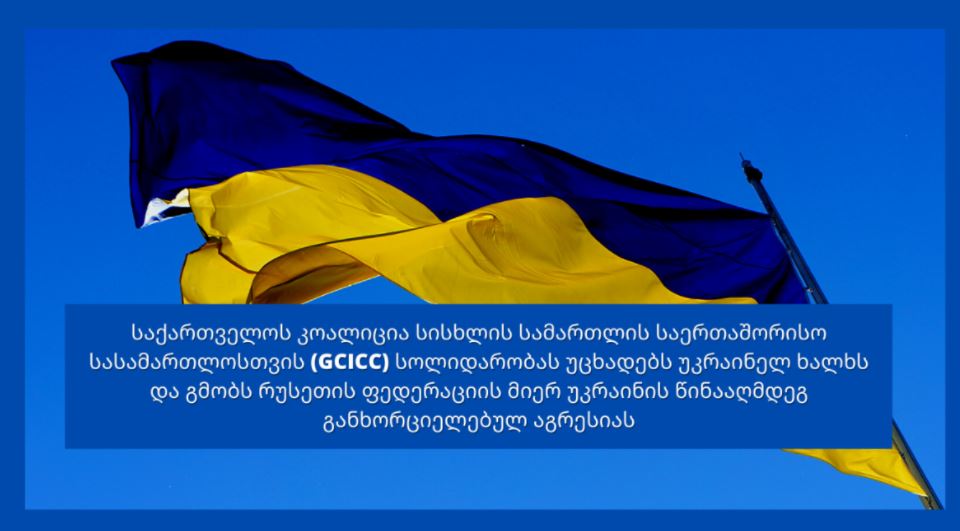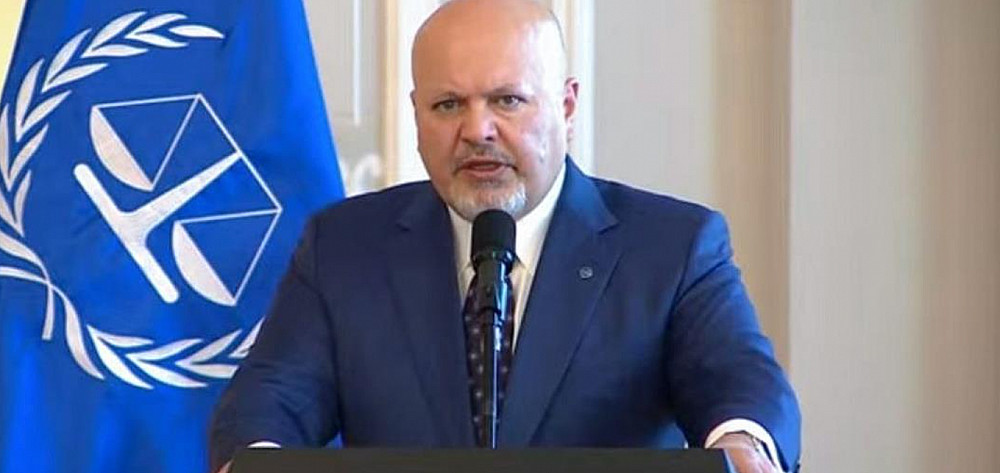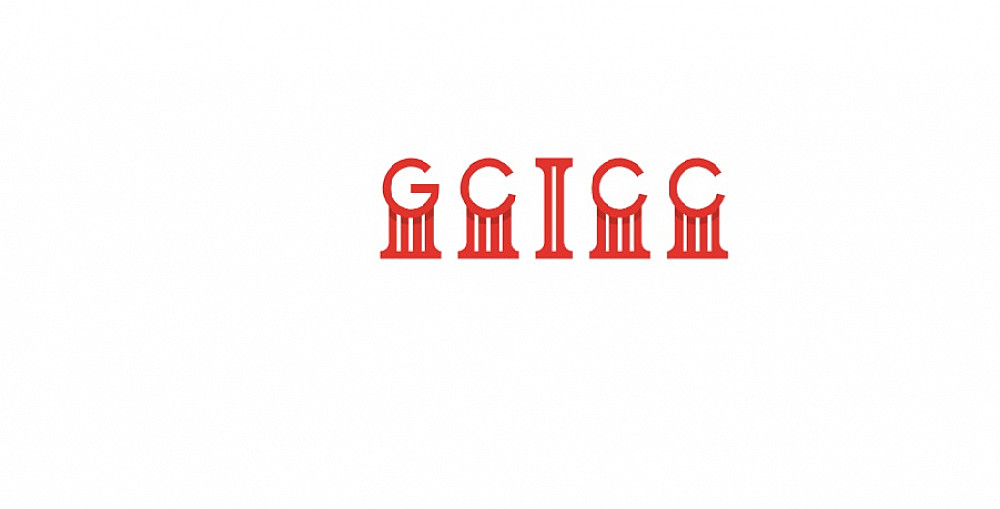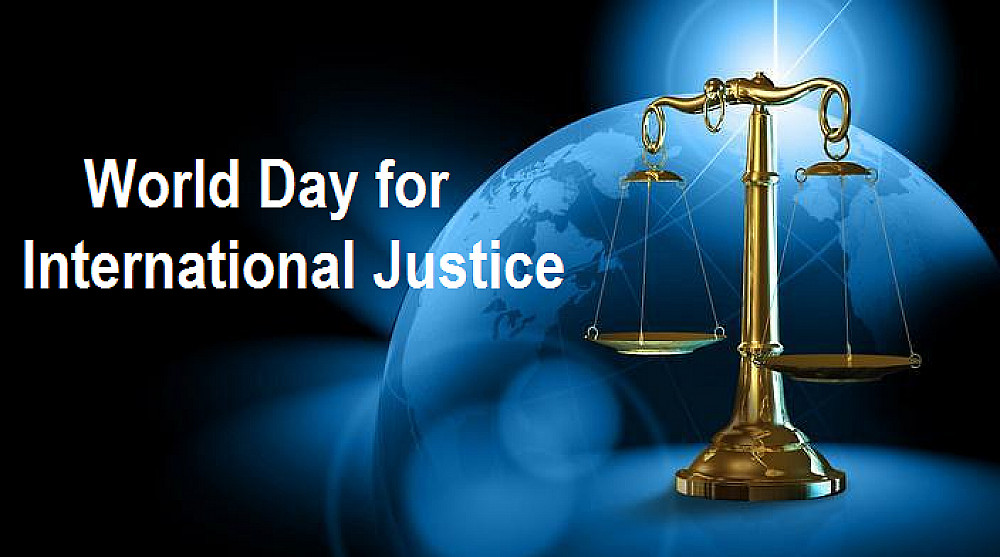
GEORGIAN COALITION FOR INTERNATIONAL CRIMINAL COURT (GCICC) EXPRESSES SOLIDARITY WITH THE UKRAINIAN PEOPLE AND CONDEMNS THE AGGRESSION OF THE RUSSIAN FEDERATION AGAINST UKRAINE
In recent days, we have seen that an armed conflict between Ukraine and the Russian army and/or pro-Russian armed forces has grown large-scale. The conflict, which has been going on for over eight years, has already claimed 16,000 lives, including the military and civilians, and 1.5 million people have been displaced. As a result of the conflict, civilian infrastructure, among others residential houses, hospitals, and schools, was damaged and destroyed.
The recognition of separatist territories by the Russian Federation and the armed attack on Ukraine violate Article 2, Part 4 of the UN Charter, which prohibits the threat or use of force in international relations. The Russian Federation is acting in the same scenario - by recognizing the independence of the separatist regions of neighboring countries, it undermines the sovereignty and territorial integrity of these states, which is then followed by the intervention by military units, which in turn creates fertile ground for the commission of international crimes.
We believe that, among other reasons, the current developments in Ukraine are a direct result of non-compliance with international criminal law. For example, the victims of the Russia-Georgia war in August 2008 are still waiting for justice. Effective investigation of international crimes and bringing the perpetrators to justice is essential to restore the legal status of the victims, as well as to ensure the accountability of states and to eliminate the syndrome of impunity. However, the protracted investigations and lack of information about the progress of the investigation leads to the loss of hope for the victims, including family members of the victims, to restore justice in the ongoing proceedings. There are a number of problems with the investigation and cases conducted by the Office of the Prosecutor of the International Criminal Court, both at the national and international levels, which have been repeatedly voiced by non-governmental organizations.
The current events in Ukraine are a continuation of the illegal occupation of Donbas and the annexation of Crimea. Ukraine has already declared its consent to the jurisdiction of the International Criminal Court. Thus, even in the current conflict, the Rome Statute of the International Criminal Court (ICC) becomes relevant, and any act that qualifies as a war crime, a crime against humanity or genocide must be investigated and adjudicated by the ICC. An effective response to international crimes is of paramount importance for maintaining world peace. The International Criminal Court must contribute to the strengthening of international peace and security.
The Georgian Coalition for International Criminal Court calls on the International Criminal Court and the Contracting States of Rome Statute to comply with the requirement under which genocide, war crimes, and crimes against humanity must never remain unpunished.
Thus, we call on the International Criminal Court to:
- Launch an investigation into the situation in Ukraine, in connection with which the pre-investigation stage has been on for already eight years;
- Take specific steps to prosecute those who committed the most barbaric crimes in the Russian-Georgian war: raids on the civilian population and facilities, taking civilians hostage, murders and rapes, looting, etc, the facts that are documented by members of the Coalition as well as other international organizations.
Signatory organizations:
- Georgian Young Lawyers’ Association
- Human Rights Center
- International Justice
- The Georgian Center for Psychosocial and Medical Rehabilitation of Torture Victims
- Rights Georgia
- (ICCN)
The Georgian Coalition for the International Criminal Court was established in 2003 with the aim of strengthening democracy and the rule of law, establishing accountability for crimes against humanity, genocide, aggression, war, and providing legal assistance to victims of such crimes at the national and international levels. In 2010, the Georgian Coalition became a member of the Global Coalition for the International Criminal Court.
The organizations within the Coalition have been actively involved in ongoing processes since 2008 and represented the interests of war-affected refugees at the national level, as well as before the European Court of Human Rights and the International Criminal Court.



